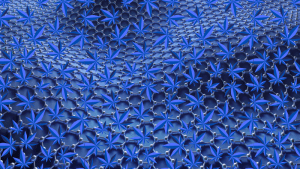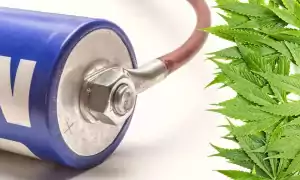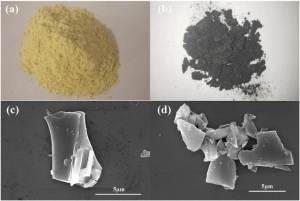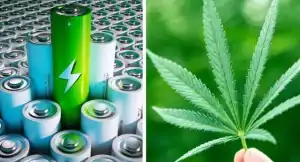English
Hemp engineers have pulled another ace out of their sleeve in the form of hemp capacitors. The surprise is that hemp capacitors are even stronger than their lithium or graphene competitors.
Cannabis is indeed extremely versatile. It is used to make paper, textiles, biodegradable plastics, concrete, health food and fuel. The Ford Model T, nicknamed the Tin Liza, was powered by hemp biofuel 100 years ago. What’s more, it also contained biopolymers made from hemp. Now it looks like hemp can be used to make electronic components.
Cannabis capacitors
Scientist Robert Murray Smith posted a video on his YouTube channel showing the potential of the hemp capacitor back in 2016. In the experiment, Smith observed the voltammogram characteristics and found that the hemp capacitor’s output had a value of 31, while the lithium cell only reached a value of 4.
Back in 2014, scientists at Clarkson University in New York found that residual hemp fibres can be converted into ultrafast supercapacitors that work better than graphene. Graphene is a unique synthetic carbon material thinner than tinfoil, yet strong enough to be bulletproof and one of the most conductive materials in the world.
Simply how do capacitors work ?
Capacitors store electrical charge on two or more conductors separated by an insulator. They have exceptional energy density, but are more efficient and have a longer life when the energy is drawn slowly and in a controlled manner.
Therefore, capacitors are often used as a battery helper during intense engine activities. The charge that a capacitor can hold is directly related to the material it is made of. Thus, highly conductive materials make better capacitors.
Graphene holds a huge charge and releases it pretty much instantly, so it charges as fast as it needs to. Cannabis seems to be a great alternative. High-performance hemp-based supercapacitors could completely change the way we produce and use energy.
Use of hemp in supercapacitor production
In 2014, during an experiment, they cooked the residual cannabis fibers. They converted them into a carbon nanosheet through a process called hydrothermal synthesis. Once the surface was boiled, the lignin and hemicellulose dissolved, leaving only the nanolayer, which formed the electrodes.
The addition of the ionic liquid produced a supercapacitor that operates over a wide range of temperatures, has a high energy density and shows one of the best performances in terms of carbon. These cannabis carbon nanosheets reportedly outperform standard supercapacitors by 200%.
Much cheaper and more environmentally friendly
Hemp may not be able to do everything that graphene can, but it works great as energy storage and costs $500-$1,000 per tonne, while graphene costs $2,000 per gram!
Countries such as Canada, China and the United Kingdom rely heavily on industrial hemp for clothing, jewellery, building materials and other products. But they send hemp residues to landfill, which is crazy, knowing how useful it could be. Everything from electric cars to power tools can use supercapacitors.
The potential of cannabis is already attracting big companies. In 2018, electric motorcycle manufacturer Alternet announced that it was developing an alternative powertrain for its ReVolt electric motorcycles.
Prohibition is holding back the boom
We already know that hemp can be used to make biofuel. Now that the hemp residues that would have become waste can be used to make capacitors, there is no stopping us. It is indeed possible that hemp could replace lithium in the future, which would have a very positive impact on the environment.
The real flowering of cannabis is only hindered by global prohibition. Let us hope that the potential of cannabis will not continue to be neglected and that it can make a full contribution to improving our world.
If you are interested in this topic we have links to more detailed articles about cannabis capacitors and even hemp batteries.
Article source : https://softsecrets.com/
Published by Kotelnik
02/03/2022choose and buy cannabis seeds from our offer
our pleasure





























Interesting, we wonder what time will tell.